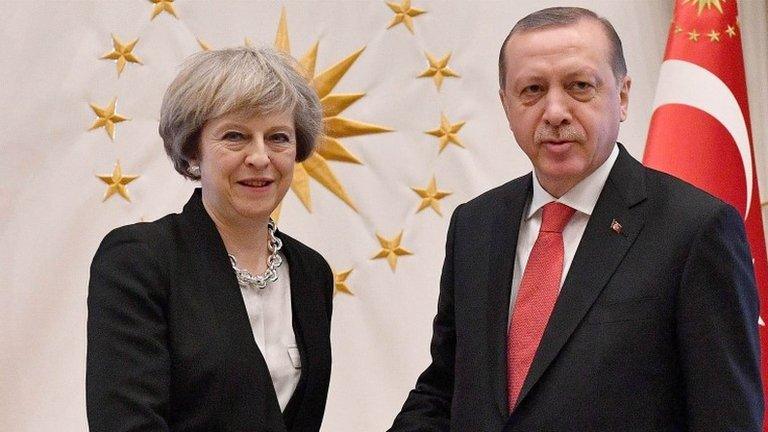Boris Johnson: US immigration order divisive and wrong
- Published
Theresa May declined to condemn President Donald Trump's ban during a press conference in Turkey
Boris Johnson says it is "divisive and wrong to stigmatise" people on the basis of nationality, amid a furore over a US clampdown on immigration.
President Donald Trump has barred entry for 90 days to refugees and nationals of seven mainly Muslim countries.
Protests have broken out at US airports and PM Theresa May has been criticised for not responding firmly enough when she was asked about it on Saturday.
No 10 has since said she does not agree with the policy.
Meanwhile, a petition to stop a state visit to the UK by President Trump later this year may be debated in Parliament, after amassing more than 300,000 signatures.
Foreign Secretary Mr Johnson became the latest politician to speak out against Mr Trump's executive order halting the entire US refugee programme and instituting a 90-day travel ban for nationals from Iran, Iraq, Libya, Somalia, Sudan, Syria and Yemen.
He wrote on Twitter, external: "We will protect the rights and freedoms of UK nationals home and abroad. Divisive and wrong to stigmatise because of nationality."
Mrs May visited the US on Friday, before President Trump issued the order. She later travelled to Turkey, where she declined to condemn it, but within hours of landing back in the UK, Downing Street released a statement clarifying her position.
"Immigration policy in the United States is a matter for the government of the United States," said a No 10 spokesman.
"But we do not agree with this kind of approach and it is not one we will be taking."
Labour leader Jeremy Corbyn told ITV's Peston on Sunday: "It wasn't until around midnight that she actually got round to re-adjusting to a position she should've adopted from the very beginning."
He said it would be "totally wrong" for a proposed state visit to the UK by Mr Trump to go ahead while the row continued.
London Mayor Sadiq Khan told Sky News the UK "should not be rolling out the red carpet for President Trump" while the travel ban was in place.
Lib Dem leader Tim Farron also said Mrs May should have argued against President Trump's actions from the outset.
"You would expect the British prime minister to fight Britain's corner", he said.
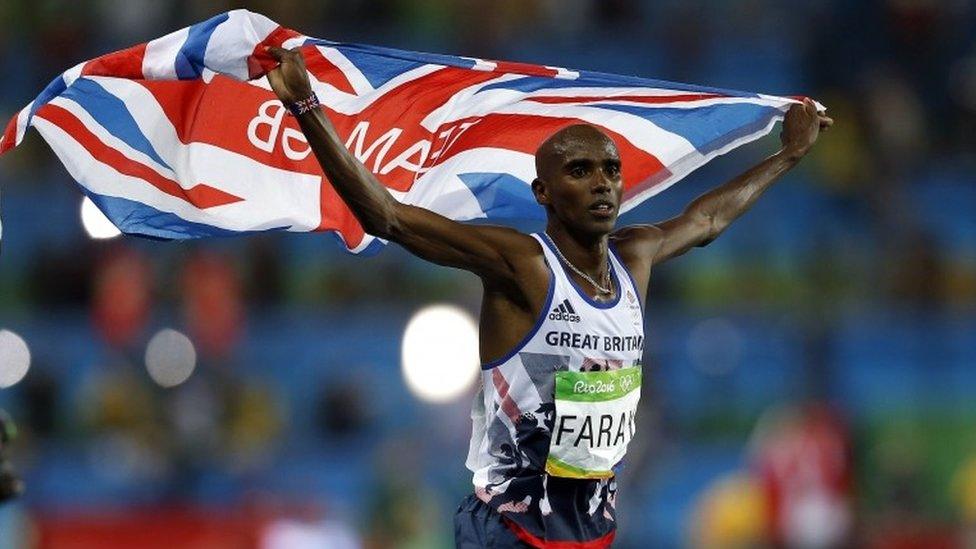
Some Conservative MPs also expressed disquiet. Heidi Allen told the BBC Mrs May "should have felt braver" about saying something about the policy to Mr Trump, given that they had got on well during their meeting.
But former UKIP leader Nigel Farage, the first British politician to meet President Trump after his election, told the BBC's Sunday Politics: "He was elected to get tough.
"He was elected to say he would do everything within his power to protect America from infiltration by Isis terrorists... He's entitled to do this. He was voted on this ticket."
Meanwhile, Olympic champion Sir Mo Farah, who lives in the US but was born in Somalia, condemned the ban as "deeply troubling".
"I am a British citizen who has lived in America for the past six years - working hard, contributing to society, paying my taxes and bringing up our four children in the place they now call home. Now, me and many others like me are being told that we may not be welcome.
"It's deeply troubling that I will have to tell my children that Daddy might not be able to come home - to explain why the president has introduced a policy that comes from a place of ignorance and prejudice."
MP Zahawi says Trump order banning him from US is "demeaning and sad"
Speaking on the Andrew Marr show, Chief Secretary to the Treasury David Gauke described the policy as "divisive" and said he had "enormous sympathy with those affected by it". But he defended Mrs May's response, saying she was not a "shoot-from-the-hip" politician.
"She is someone who wants to see the briefing and understand it and then will respond to that... The important thing is we are saying we disagree with it and we do think it's wrong."
And Conservative MP Nadhim Zahawi, who was born in Baghdad, told the the BBC the ban meant he would be unable to visit his sons who are studying at Princeton University in the US.
The MP for Stratford on Avon said the ban was cruel and he hoped it would be reversed.
The Muslim Council of Britain, which represents more than 500 mosques, Muslim charities and schools, called on the government to speak out more forcefully against the "downright dangerous" order.
Secretary General Harun Khan said: "We are told that British values include the rule of law and 'mutual respect for and tolerance of those with different faiths and beliefs and for those without faith'. Yet our prime minister has found it hard to express these values when representing us on the world stage."
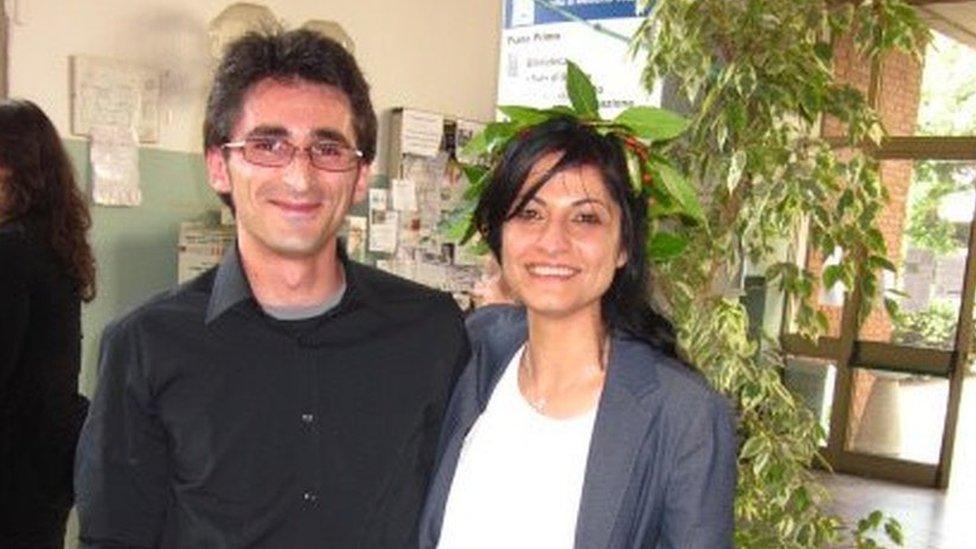
Hamaseh Tayari (r) was one of those affected by the ban
Glasgow vet Hamaseh Tayari is one of those affected by the executive order. She was told she could not fly home to the UK from Costa Rica via New York as she travels on an Iranian passport.
An appeal to raise funds for a new flight home, via a different route, reached its target just a few hours after being launched.
Number 10 said it was studying the executive order and would "make representations" to the US government if any UK nationals were affected.
- Published28 January 2017
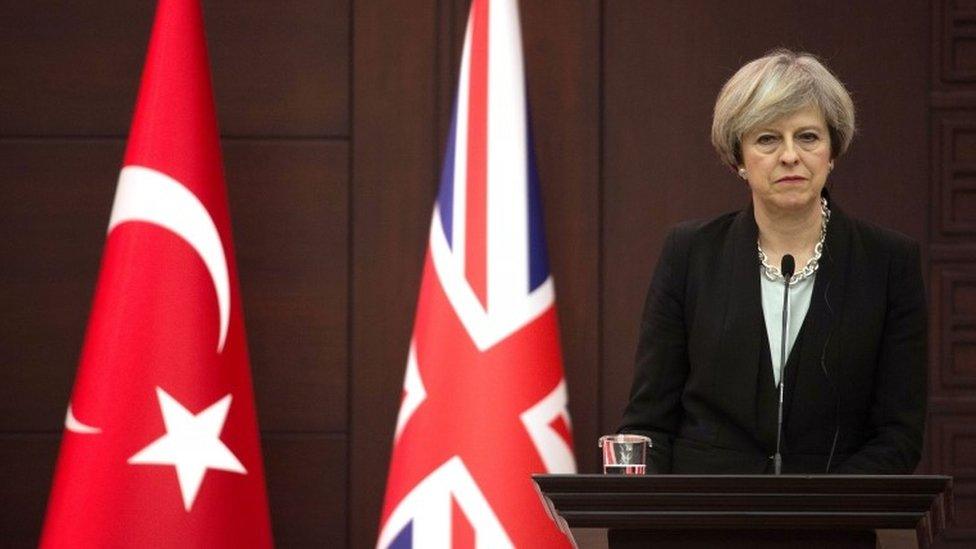
- Published28 January 2017
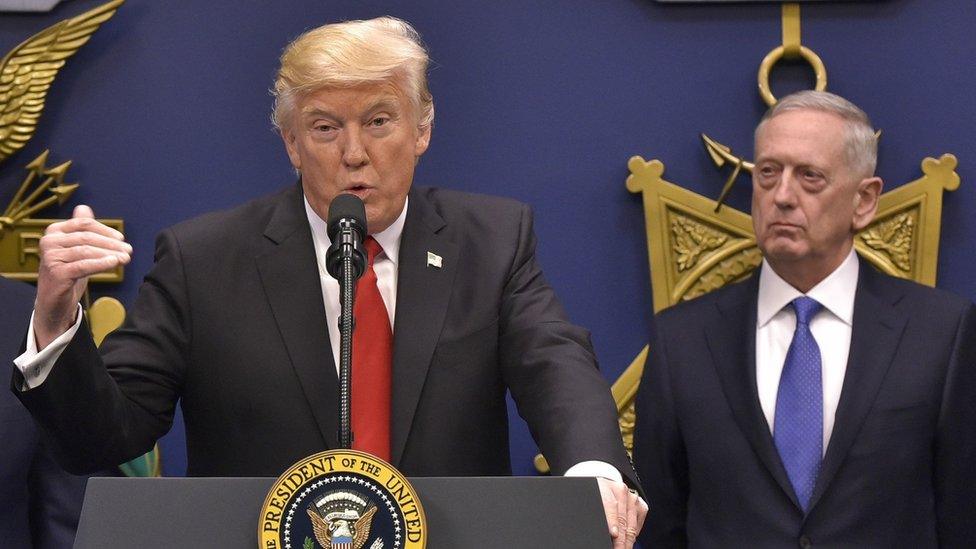
- Published28 January 2017
